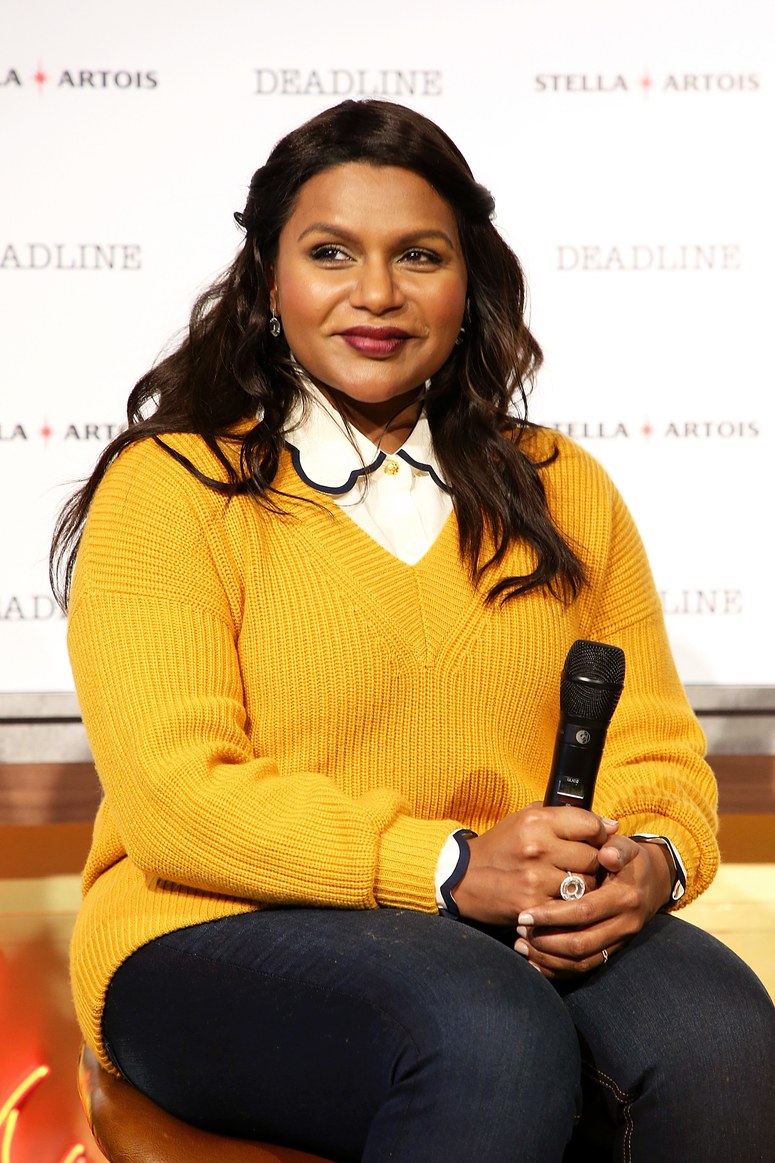Late Night Director Nisha Ganatra: It's Still 'Sadly Radical' to Show a Woman Without Makeup

Immediately after I left the screening of Mindy Kaling‘s upcoming film, Late Night, at this year’s Sundance Film Festival, I texted a friend a glowing, all-caps review: “I CAN’T WAIT TO SEE IT AGAIN.”
For one, it’s an incredibly enjoyable film to watch, the kind of story you want to lose yourself in after a bad day. Kaling wrote (and produced) the film for Emma Thompson, who plays a witty, glamorous, sometimes terrifying talk show host. Kaling’s character joins her writing staff as a diversity hire, but what follows is a refreshing—and, yes, hilarious—movie about mentorship, equality in the workplace, and the value of hard work.
“It’s really easy to slip into a place when you start out in your career where you’re like, I’m just trying to get my foot in the door and I only want to help myself. I’m scared to help anybody else,” Kaling explained at a Sundance Film Festival panel hosted by Stella Artois and Deadline. “And then, as you become more successful, you realize it behoves you to [help others]. The movie is so much about women helping other women, about mentorship and learning how to become a mentor.”
Behind the camera, Kaling and her fellow producers put that into real action by hiring a female director, Nisha Ganatra, and creating a gender-balanced set. The film has even earned the ReFrame Stamp, a mark of distinction formed by Women in Film and the Sundance Institute for projects that have female-identifying people in four out of eight key areas of production.
That’s not the only impressive stat about Late Night, either. Following its Sundance premiere, the movie was purchased by Amazon for a whopping $13 million—a record for the festival at the time, and proof that there is money to be made for female-led productions. So, I sat down with Ganatra after the panel to learn more.
Late Night was purchased by Amazon in a record-breaking deal. What does that mean for you—and for female directors? It’s major.
Nisha Ganatra: I think this movie setting a record at Sundance is so important because the leads are a woman over the age of 50 and a woman of color. That, sadly, is radical alone, but there was so much talk of, “Oh my God, will this make money? Is this marketable? Who will go see this?” The fact that this movie broke the record at Sundance is so significant and so exciting and so amazing because it validates that you can tell your story. You can tell the story that people don’t think is worth telling, and it will find its audience and people will reward you for it.
You were pregnant while you filmed this movie, and during the Stella Artois & Deadline Sundance Series Late Night panel you joked that you wore big sweaters so nobody would worry. I was struck by that—Mindy Kaling has a young child, and this movie has the ReFrame Stamp for gender parity. It’s obviously a female-friendly workplace, so I’m curious why you felt that way?
NG: Well, our culture still treats pregnant women like they are fragile things, and that is not true or fair at all. For me, it was more…as a director, I’m very nurturing and I feel very protective of the cast. I didn’t want them to look at me and think, oh have a seat! Have some water! I wanted them to feel like they could go head-to-head with me and not have to worry about my fragile state of pregnancy.
